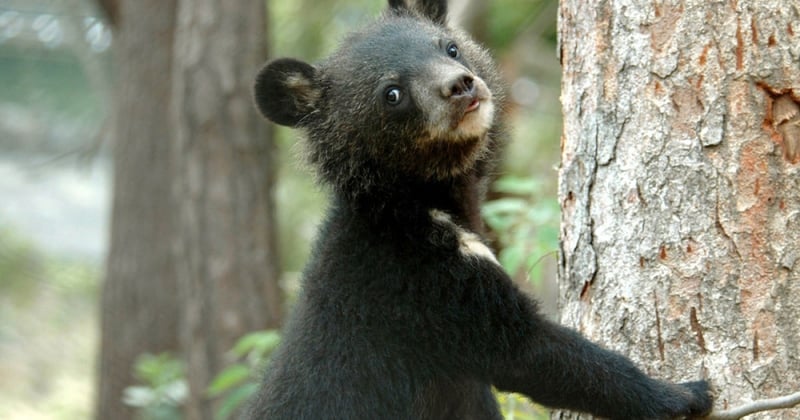
Local authority calls for an end to the bear bile tourism industry
News
Today, over 80 captive wild bears in tourism hotspot Ha Long Bay in Vietnam are a step closer to freedom from the illegal bear bile tourism industry.
For six years our local partners Education for Nature Vietnam (ENV) have been working to expose one of the darker sides of tourism: the exploitation of bears for their bile in one of Vietnam's most popular tourist destinations.
In late 2013, after a period of intense surveillance and monitoring, ENV managed, with our support, to produce solid evidence that the bear bile tourist industry was taking place behind closed doors in Ha Long Bay, where the extraction and selling of bear bile is illegal.
Seeing this evidence has prompted the local authority, the Quang Ninh People's Committee, to call for an end to the bear bile tourism industry in the area - for good.
A task force including ENV, the Forest Protection Department, the Environmental Police and the provincial government, has now been set up by the Quang Ninh People's Committee. It aims to prevent tourists from visiting bear bile facilities and to protect bears being exploited for their bile.
The last two remaining facilities selling bear bile have now been permanently closed to tourists, with none visiting for four months - signalling an end to this inhumane, unnecessary and illegal tourism industry.
Continued monitoring will ensure that the bear bile tourism industry doesn't migrate to other well-known hot spots and that illegal activity does not resume.
Luke Nicholson, our Bears in the Wild Project Manager, says: "Bears are wild animals, they belong in the wild, yet these animals are forced to suffer a lifetime in captivity for use in traditional medicine.
"This action in Ha Long Bay, a hugely popular tourist destination, is sending out a clear message that it is totally unacceptable to exploit wild animals for profit.
"At the same time, this is an opportunity to make people aware of the suffering experienced by wild animals in captivity. And, the needless cruelty endured by bears for their bile, when there are effective and affordable herbal and synthetic alternatives readily available.
"We will continue to work with governments, partners and individuals, to drive legislation, policy, enforcement and monitoring, to end the exploitation of wild animals."
Read more about our work to end the bear bile industry.
Image: Moonbears like this cub are commonly used in Asia for their bile (Endangered Species Restoration Project, South Korea)
This action is sending out a clear message that it is totally unacceptable to exploit wild animals for profit